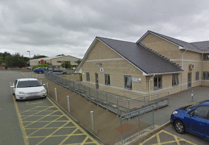CORNWALL Council have responded to concerns made by a local councillor about DIY waste disposal at a local household waste recycling centres (HWRC), saying they they are “continuing to review the service”.
Last month, Liskeard South and Dobwalls councillor, Cllr Jane Pascoe, expressed concerns about fly tipping after an amendment was made to controlled waste disposal at Connon Bridge HWCR.
Since then, Cornwall Council have explained why Connon Bridge HWCR is not accepting items such as asbestos, plasterboard, soil, rubble, sanitary wear and tyres – saying that this change has been made with visitor figures and area populations in mind.
A spokesperson from Cornwall Council explained: “Following recent changes to government legislation we stopped charging residents for getting rid of their DIY waste at our household waste recycling centres last month [January].
“Because of these changes, together with our waste and recycling partner SUEZ we reviewed all our HWRCs in terms of their area populations, visitor figures and tonnage received for these materials.
“As a result, for an initial trial period of six months from January 2, we have paused DIY waste disposal at six HWRCs. These centres are Bodmin, Connon Bridge, Pool, Helston, Launceston and United Mines.”
Cornwall Council also stated that this trial aligns with similar actions taken by other local authorities, which have also reduced the number of sites accepting DIY waste in response to legislative changes.
“Free DIY waste disposal is now available at eight sites across Cornwall: St Erth, Falmouth, Truro, Newquay, St Austell, Saltash, Tintagel and Bude,” a spokesperson continued.
“These eight consist of our six busiest sites for the receipt of DIY waste.”
The government has advised residents who wish to dispose of DIY waste can do so for free up to a limit of two bags of soil or rubble or one sheet of plasterboard or a bulky item per week.
A spokesperson added: “In Cornwall we are allowing free disposal of up to eight bags or four sheets of material per week to prevent multiple trips and minimise residents’ carbon footprint.
“We will continue to review the service during this trial period and identify areas for improvement.”




